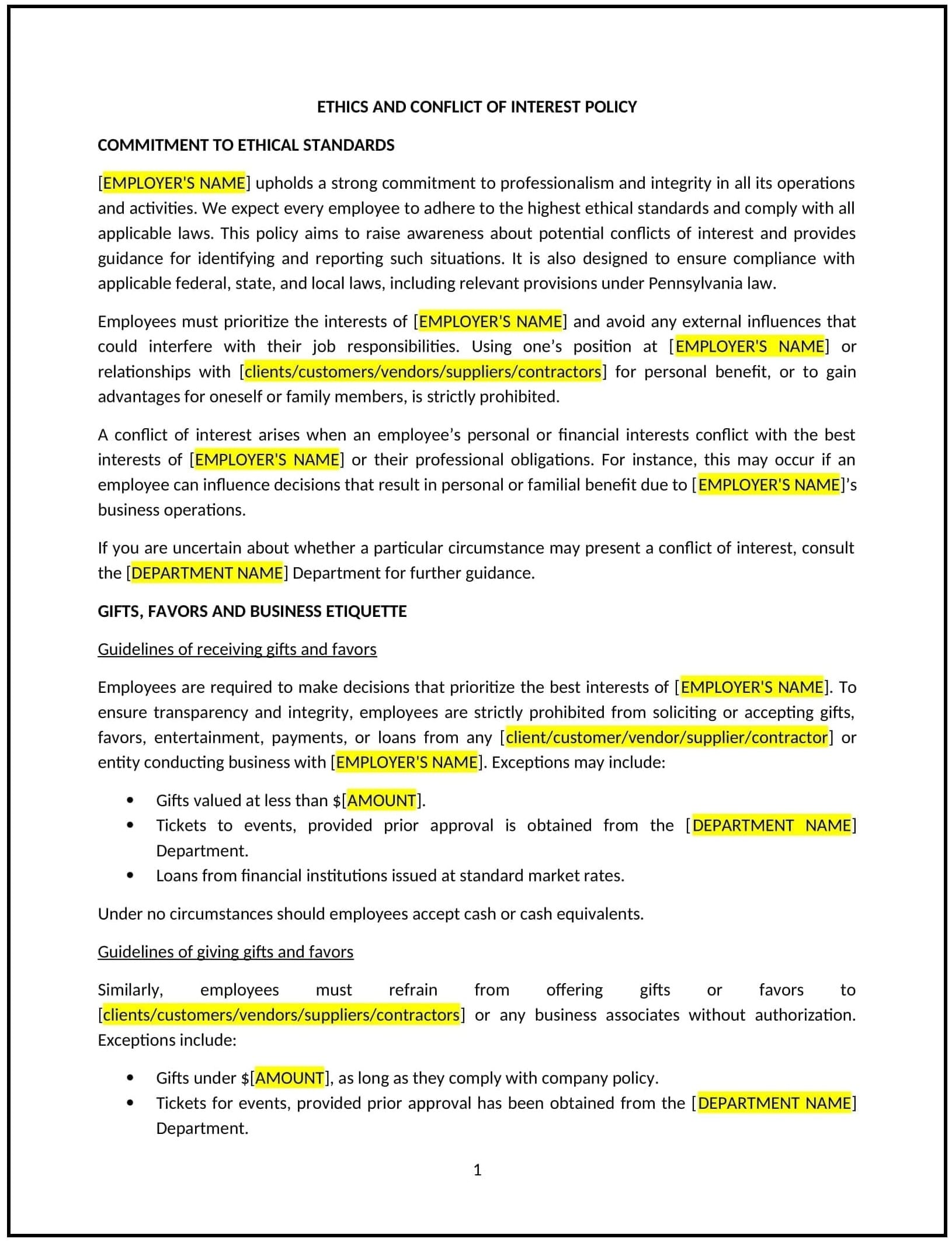Ethics and conflict of interest policy (Pennsylvania): Free template
Got contracts to review? While you're here for policies, let Cobrief make contract review effortless—start your free review now.

Customize this template for free
Ethics and conflict of interest policy (Pennsylvania)
This ethics and conflict of interest policy is designed to help businesses in Pennsylvania promote integrity, transparency, and ethical behavior in the workplace. Whether managing potential conflicts, ensuring fair business practices, or protecting company interests, this template provides clear guidelines to uphold ethical standards and align with Pennsylvania laws and regulations.
By using this template, businesses can foster a culture of accountability, safeguard their reputation, and reduce risks associated with unethical behavior.
How to use this ethics and conflict of interest policy (Pennsylvania)
- Define ethical standards: Clearly outline the organization’s expectations for ethical behavior, such as honesty, fairness, and adherence to company values.
- Address conflicts of interest: Specify situations that could create conflicts, such as personal relationships, outside employment, or financial interests that interfere with business decisions.
- Include reporting procedures: Provide steps for employees to disclose potential conflicts of interest or unethical behavior, ensuring confidentiality and fairness.
- Establish enforcement guidelines: Detail the consequences of policy violations and the steps the company will take to address them.
- Reflect Pennsylvania-specific considerations: Tailor the policy to align with local industry practices and regulatory requirements, such as disclosure rules for certain professions.
Benefits of using an ethics and conflict of interest policy (Pennsylvania)
A well-structured ethics and conflict of interest policy supports transparency and organizational integrity. Here's how it helps:
- Promotes ethical behavior: Encourages employees to act with integrity and make decisions in the best interest of the business.
- Reduces risks: Helps identify and address conflicts of interest before they escalate, minimizing legal and reputational risks.
- Enhances accountability: Sets clear expectations for employees and outlines consequences for unethical behavior.
- Protects company interests: Safeguards sensitive information and business decisions from undue influence.
- Aligns with local practices: Reflects Pennsylvania-specific laws and standards, ensuring relevance and compliance.
Tips for using an ethics and conflict of interest policy (Pennsylvania)
- Communicate expectations: Share the policy with employees during onboarding and provide regular reminders of its importance.
- Encourage disclosures: Foster a culture where employees feel comfortable reporting potential conflicts of interest or unethical behavior.
- Provide training: Offer ethics training to employees and managers to reinforce the company’s values and policy guidelines.
- Monitor compliance: Regularly review business practices to ensure adherence to ethical standards and identify potential conflicts.
- Review periodically: Update the policy to reflect changes in Pennsylvania laws, federal regulations, or organizational needs.